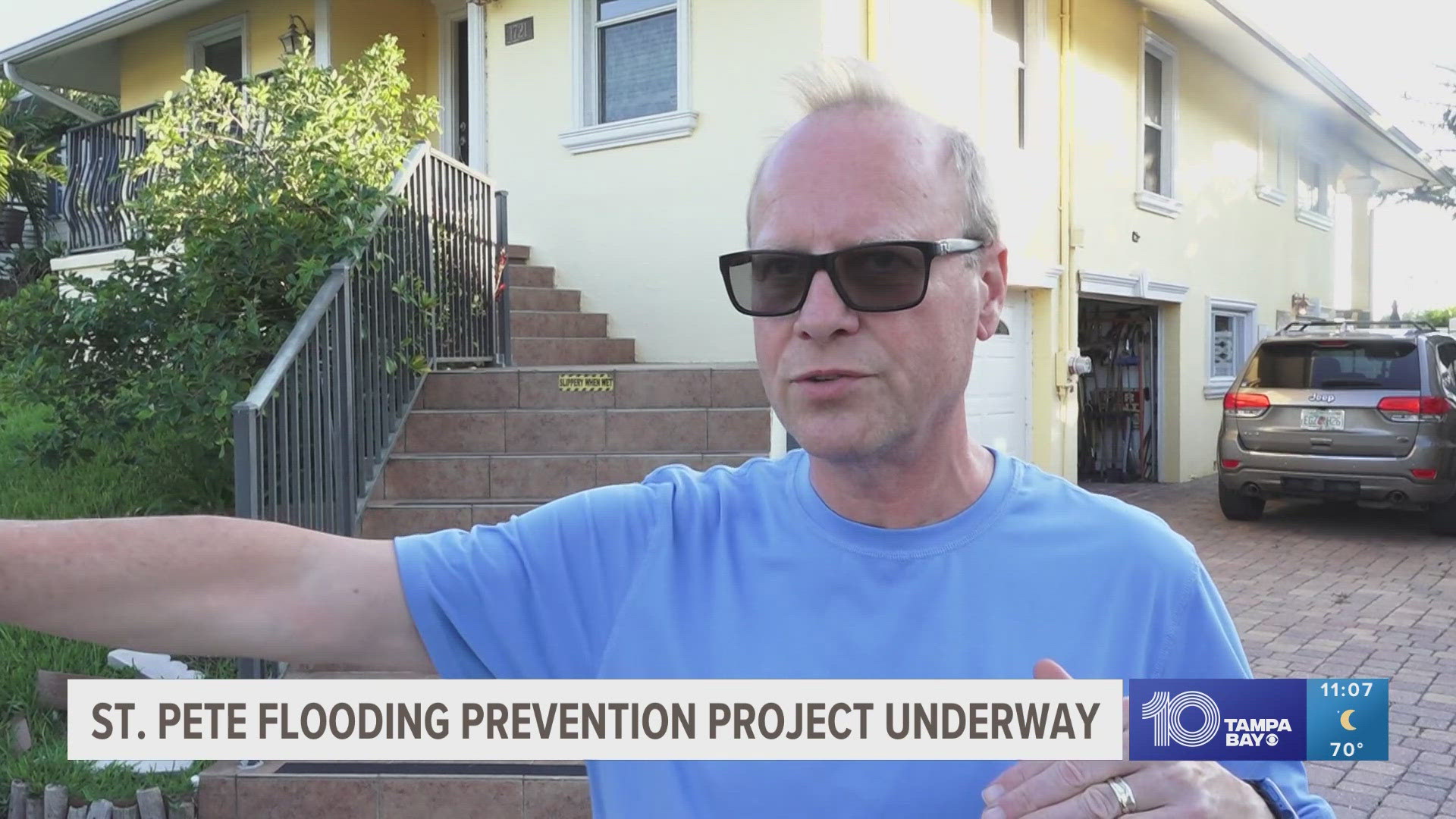ST. PETERSBURG, Fla. — A nearly $4 million project is underway right now in St. Petersburg; the goal is to tackle tidal flooding that pushes saltwater onto streets, even when there is no rain in sight.
10 Tampa Bay got an up-close look at the work being done right now in one Shore Acres homeowner's front yard.
Kerry Shuey lives on Bayou Grande Boulevard in St. Pete and lives right on a canal. Too often, higher-than-normal tides push saltwater out of a drainage sewer and onto the road.
“It'll fill the streets and look like a little lake sometimes,” he says. “I try to avoid it because it'll rust out the brakes, and I’ve had to have that repaired a couple times.”
Wednesday morning at low tide, crews hired by the city got to work replacing an ineffective backflow preventer right next to Shuey's home. The old one was installed nearly 15 years ago and Shuey says it's never stopped the tidal flooding. The tool works as a one-way valve to discharge rainwater into the canal but doesn’t allow the saltwater to flow back through the drain.
“Our neighbors don't want to drive through saltwater, nobody should have to drive through saltwater,” said Kevin Batdorf, the president of the Shore Acres Civic Association. “It's unnecessary, never should happen. And the city finally listened to us.”
While the city already was planning to replace 14 backflow preventers with a newer, more water-tight model, Public Works Administrator Claude Tankersley says the flooding from this past year's storms raised the urgency to replace them all city-wide.
“And we hope that will slow down but it may not,” Tankersley said. “And so we've got to tackle this. Now.”
This is the fourth backflow preventer the city has installed. They have about 50 all told throughout the city to prevent high tide from coming onto people's streets. For Shuey, he's glad to see something being done to address the problem.
“Hopeful,” he says. “Hopeful that it'll work but it's a wait-and-see for me.”
But he's not ready to say the problem is solved... yet.
The city is starting with the smallest backflow preventers first. Each one costs between $10,000 and $100,000 depending on the size. City leaders hope to finish replacing all of them by the end of the summer.

